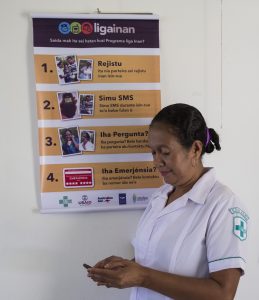
In this self-reflection of the Learning Management System (LMS) rubric assignment, I will revisit and contemplate the learning goals which I set at the outset of the Course in my Flight Path. To recap, these comprise of: (i) reflecting on my personal and professional journey to date in terms of education and technology, (ii) gaining a deeper understand of the language, concepts, theoretical perspectives of educational technology, (iii) developing new skills, and (iv) evolving myself in new ways.
In the area of reflection of my previous professional journey, the rubric assignment helped me to consolidate and revisit my experiences of using similar tools in the past. The challenges of developing tools and processes that are user friendly, objective, and measure the important variables whilst not being overly burdensome for the user. My belief that the assessment ‘process’ is as important as the rubric tool itself, was further reinforced. The value of working in teams, to gain a range of perspectives and expertise to create a better final product was also consolidated, despite the challenges of working across three corners of the globe.
With respect to understanding, the educational assessment model of a rubric is somewhat new to me, so this was an opportunity to further dissect the components of this tool, think more deeply about: wording, challenges of scoring and weighting, and the strengths and limitations of the rubric tool. With respect to the limitations, a recognition of the importance of building a process around the rubric, including the participation of multiple stakeholder and group reflection before a final determination was also highlighted. Applying the SECTIONS model in a concrete way helped me to consolidate this practical and comprehensive framework (Bates, 2014). Importantly, I also gained deeper understanding of the complexity of sourcing a LMS with the multitude of considerations that need to be addressed in determining selection.
In the area of developing new skills, the assignment helped me to build competencies in rubric development which are transferable to many other domains including: educational course development, contracting of other technology systems, and various other applications. The assignment also facilitated my further exploration into the availability of online tools for health-related case management and clinical assessment; and I was surprised to find a considerable number of resources for case management, but relatively little for clinical review. This is an area I hope to explore further in the future. Through this exercise I was also able to strengthen my skills in the google suite, especially google hangout which I hadn’t used previously, but is analogous to other tools I’ve used extensively such as WhatsApp and skype.
Finally the assignment helped me to consider how I can evolve my interest in educational technology with my long experience in public health. The assignment helped me further consider how these different areas of interest can be blended in a meaningful way in my personal and professional journey. In particular, I became clearer that in a low resource public health context, learning environments will likely be more about what Spiro refers to as facilitating and guiding the ‘pull’ of learning, rather than the ‘push’ learning which has been the dominant model used by LMS to date (Spiro, 2014).
References
Bates, T., (2014) Choosing and using media in education: The SECTIONS model. In Teaching in digital age. Retrieved from https://opentextbc.ca/teachinginadigitalage/part/9-pedagogical-differences-between- media/
Porto, S. (2015). The uncertain future of Learning Management Systems. The Evolution: Illuminating the Lifelong Learning Movement. Retrieved from http://www.evolllution.com/opinions/uncertain-future-learning-management-systems/
Spiro, K. (2014). 5 elearning trends leading to the end of the Learning Management Systems. Retrieved from http://elearningindustry.com/5-elearning-trends-leading-to-the-end-of-the-learning-management-system